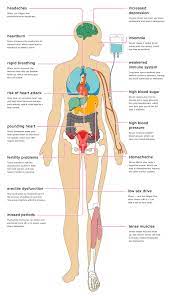Stress is a pervasive aspect of modern life, affecting individuals from all walks of life. In today’s fast-paced world, it’s no surprise that stress has become an integral part of our daily existence. While it is commonplace, the science behind stress and its far-reaching effects on our health is a topic that deserves in-depth exploration.
Understanding the Basics of Stress
Before delving into the intricate relationship between stress and health, it’s important to comprehend the basics. Stress, in essence, is the body’s natural response to any demand or threat. This reaction is often referred to as the “fight or flight” response. When confronted with a perceived danger, your body releases stress hormones, such as adrenaline and cortisol, to prepare you for action. This response is essential in critical situations, helping us navigate potentially dangerous circumstances.
The Physiological Impact of Stress
Stress, however, is not merely a mental or emotional phenomenon—it has profound physiological implications. Let’s dissect the various systems affected by stress:
1. The Cardiovascular System
Chronic stress can take a significant toll on your heart and blood vessels. Prolonged stress may lead to increased blood pressure, which can contribute to cardiovascular diseases, including hypertension and heart disease. The constant activation of the “fight or flight” response can strain the cardiovascular system, potentially causing long-term damage.
2. The Immune System
Stress has a marked influence on your body’s immune response. When you’re stressed, the immune system’s ability to fight off infections is compromised. This can result in more frequent illnesses, slower recovery times, and an increased susceptibility to various health issues.
3. The Nervous System
The brain is intricately linked to stress, and chronic stress can rewire the brain in detrimental ways. It can lead to cognitive impairments, memory problems, and even mood disorders like anxiety and depression.
4. The Digestive System
Stress can wreak havoc on your digestive system. It can cause symptoms like stomachaches, diarrhea, and even exacerbate conditions like irritable bowel syndrome (IBS). The gut-brain connection is a fascinating area of study, as stress can significantly impact the balance of beneficial and harmful bacteria in the digestive tract.
Mental and Emotional Consequences of Stress
The effects of stress aren’t limited to the physical realm. They have a profound impact on mental and emotional well-being as well:
1. Anxiety and Depression
Chronic stress is closely associated with the development of anxiety and depression. The constant activation of stress hormones can alter brain chemistry and lead to persistent feelings of unease and sadness.
2. Sleep Disturbances
Stress can lead to difficulty falling asleep, staying asleep, or experiencing restful slumber. This can create a vicious cycle, as sleep disturbances can exacerbate stress, further perpetuating the problem.
3. Decreased Cognitive Function
Under stress, cognitive function can suffer. You might find it challenging to concentrate, make decisions, or remember important details.
Coping Strategies for Managing Stress
Given the detrimental impact of stress on both physical and mental health, it’s crucial to implement effective coping strategies. These include:
1. Exercise
Regular physical activity can help mitigate the effects of stress on the body. Exercise releases endorphins, which are natural mood lifters, and helps reduce stress hormones.
2. Mindfulness and Meditation
Practicing mindfulness and meditation techniques can promote relaxation and reduce the body’s stress response.
3. Social Support
Connecting with friends and loved ones is essential. Sharing your thoughts and feelings can provide emotional support and alleviate stress.
4. Time Management
Efficient time management can reduce the overwhelming feeling of being constantly under pressure. Prioritizing tasks and setting achievable goals can be instrumental in stress reduction.
The Bottom Line
Understanding the science behind stress and its impact on health is imperative in the modern world. Stress is not just a mental state but a complex physiological response that can have far-reaching implications on your overall well-being. By recognizing the signs of stress and adopting effective coping strategies, you can better manage its effects and protect your health.


